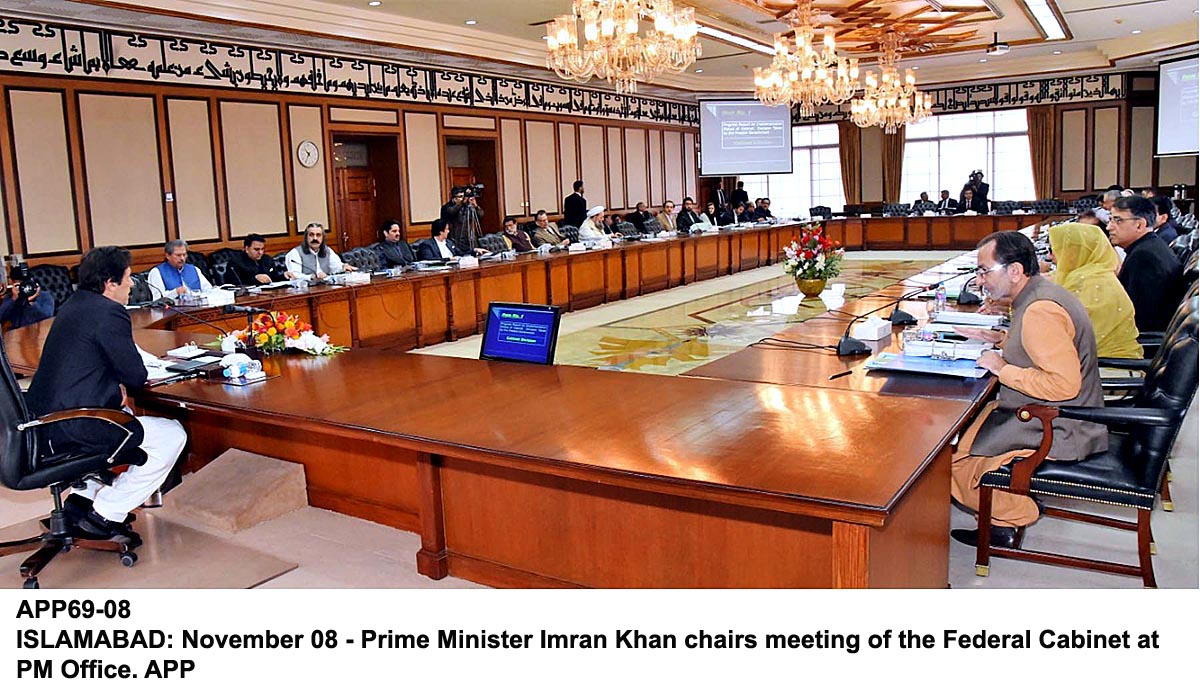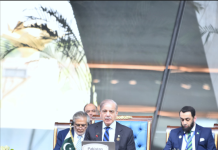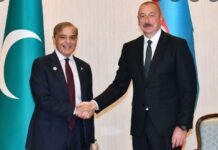
Addressing an international maritime symposium organised by the Institute of Maritime Affairs, the prime minister said currently Pakistan’s economic growth stood at 6% but it could be increased remarkably by ensuring the proper utilization of access to the sea. He said though the aviation sector looked to be more glamorous, 80% of global trade was still carried out through sea. He believed that providing access to sea was critical for better regional connectivity.
He said the Indian Ocean Region was important hub of global energy flow and trade as large energy flew through this region. He said it was a great opportunity to exploit trade volume in the region.
The prime minister said the resolution of Afghan issue was vital to ensure the access of Central Asian States to Gwadar through Afghanistan. He said the Central Asian States were interested to become part of Gwadar to benefit from the port. He said Pakistan is currently developing 1,700-kilometer-long motorways network and 1,200 kilometers secondary roads in the country, particularly in Balochistan. Such projects, he said would provide synergy to Gwadar port. Pakistan needed to work with China to ensure execution of President Xi Jinping’s vision for connectivity and financial integration, he said and called for hard work as the country had the great opportunity to ensure not only its own growth but also of the whole region.
Earlier, Chief of Naval Staff Admiral Zafar Mahmood Abbasi in his inaugural address, while discussing the symposium’s theme, said that the subject is rooted in the remarkable trade history of the region which has transcended various races, cultures and religions. “In the 21st century, the conceived economic networking through Belt and Road Initiative will not only help revive historical links but also contribute towards economic prosperity of the countries renewing transcontinental trade routes connecting Asia, Africa, Europe and even beyond,” he said.
While highlighting the significance of Indian Ocean, the naval chief said that the region has been the global geo-political chessboard and one of the core drivers of world’s prosperity. “However, over the past few decades, it has witnessed seismic shift at the geo-strategic level. While this shift was initially security focused, the Belt and Road Initiative is an attempt to transform it into geo-economics. In this context, the BRI, including the flagship CPEC project, promises huge investments, economic development and consequent socio-economic empowerment of the poverty ridden masses of the region,” he added.
“Nonetheless, BRI will have profound regional and extra-regional implications as it has drawn attention for competition, influence, economic gains and security interests. Integrating more and more countries and forging their stakes through an open, coordinated and inclusive arrangement, however, would contribute towards a more conducive and stable security environment based on the principles of positive gains for all,” the naval chief said.
While discussing the security dimension of BRI and CPEC and the ensuing expansion of maritime economic activity, the naval chief stated, “We ought to be cognizant of the traditional and non-traditional security threats that necessitate effective security, proactive diplomacy, well-considered economic policies and risk management as important ingredients to exploit and sustain the pace of development and potential growth.” Pakistan Navy has formulated robust employment and development strategies to safeguard national maritime interests despite the numerous challenges, he added.
He said the prime minister has approved the setting up of a shipyard at Gwadar which would contribute to Pakistan’s economy as well. The setting up of another shipyard was on the table too. The Ministry of Ports and Shipping has been renamed as Ministry of Maritime Affairs, he added.
Professor Tang Mengsheng, director of the Centre for Pakistan Studies at Peking University, said CPEC would contribute to the socio-economic development of Pakistan and China both.
The event was also attended by AJK President Sardar Masood Khan, Rector Bahria University Vice Admiral Muhmmad Shafiq, National Security Adviser Lt Gen (r) Nasser Khan Janjua and DG Institute of Maritime Affairs Rear Admiral Mukhtar Khan.
Published in Daily Times, May 8th 2018.














